The weather is getting colder and colder, and blood sugar is getting harder and harder to control... Q&A Can an expert give a tip on a reliable sugar control program?
A diabetes specialist answers the question.
When the weather gets cold, many patients feel like their blood sugar is rising, so is there a relationship between weather and blood sugar?
The answer is yes, and it may be more pronounced in some people, with the main influencing factors being mainly diet and exercise.
cold weather
When it's cold, people are less active than before, consumption declines, and the amount and variety of food and drink increases as the weather gets colder, eating more hot things, absorbing them more quickly, and raising blood sugar faster. There are fewer green vegetables than in other seasons, and fiber intake declines. When the weather gets cold, family members go out less and gather at home, and the lively atmosphere of reunion leads to an increase in the amount of food eaten.
The most important thing is that there are many important festivals in winter, such as Chinese New Year and New Year's Day, etc. According to the traditional habits of the Chinese people, the important activity on these days is to eat, eat, eat, which is another big challenge for many diabetic friends who do not have very strong self-discipline.
hot weather
When it is hot, there are many varieties of fruits, including many very sweet fruits, many people will increase the number and amount of fruits, and the weather is hot, and do not want to go out to activities, sweating more, if there is no timely replenishment of water, then the blood glucose will also increase.
Therefore, when the weather changes, it is important for diabetics to adjust their blood sugar and medication according to their eating habits and preferences.
If blood sugar is still very difficult to control with strict diet and exercise therapy, you will need to adjust your medication regimen a bit.
Promptly communicate with the doctor in charge, so that the doctor can adjust an individualized treatment plan for you according to the situation. You can go to the hospital to check your blood glucose profile or ambulatory blood glucose, observe your blood glucose situation in which time period is significantly elevated, then adjust the medication in which time period. If all the blood glucose is significantly elevated, you should increase the dosage of the current medication, or adjust the treatment program, and if necessary, insulin therapy.
For example, if oral drug therapy, such as the dosage is not large, such as blood glucose control is relatively poor, you can increase the dosage of drugs, sulfonylureas and non-sulfonylureas, glycosidase inhibitors and other drugs, the maximum dosage of 6 capsules, the maximum dosage of metformin per day for 2,000mg, if it is not reached can be gradually increased. However, it is important to closely observe the adverse effects of the drug, such as gastrointestinal reactions and hypoglycemia. If there is any discomfort, you must go to the hospital in time.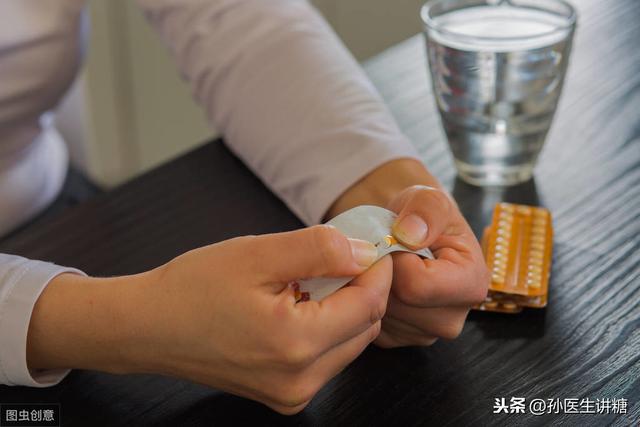
Note that patients with hepatic or renal insufficiency should not adjust their medication on their own. If the dosage of the drug is already large, but the blood sugar still does not drop significantly, communicate with the doctor to adjust the treatment program. Do not blindly increase the dosage of drugs.
All of the above medication adjustments require that they be made in the presence of a blood glucose test and to rule out the Sumuje reaction that occurs after significant hypoglycemia. If such a reaction occurs the drug dosage should not be increased but reduced. Diabetic friends must be aware of the possibility of this condition.

Patients using insulin are not advised to increase the dosage on their own. In fact, it is also not recommended that patients increase the dosage of their medication on their own and try to contact their doctor as much as possible.
The above, for reference only, is not a basis for treatment. I hope you can help. Pay attention to Dr. Sun's talk about sugar and continue to provide quality health knowledge.
Diabetic patients to control blood sugar must first from the diet regulation. Diet is mainly from these aspects to improve, control. To control the total calorie intake, maintain a balanced diet, all kinds of substances should be consumed, such as protein, fat, carbohydrates. Eat small, frequent, regular meals, can consume more food high in dietary fiber, and control the intake of salt.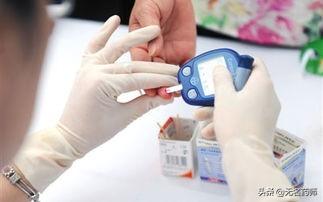
1. How to control fat intake
Do not provide more than 30% of your total dietary calories from dietary fat throughout the day.
Reduce the intake of saturated fatty acids such as suet, lard, palm oil, cocoa butter and other foods. Consume foods rich in unsaturated fatty acids, such as beans and their products, as well as mushrooms, nuts, sunflower oil, corn, eggs and their products.
2. How to control the intake of staple food? Staple foods should make up about 50% of your total calories each day.
3. What do I need to pay attention to in terms of protein intake?
Consume about 15% of your total calories from protein each day. You should eat more high-quality protein foods, such as fish, seafood, lean meat, eggs and low-fat dairy products, nuts and so on. For patients who already have renal impairment, protein intake should be controlled.
4. How do diabetics come to eat fruits?
Many diabetic patients worry that fruit contains too much sugar, causing blood sugar rise, so they do not eat fruit at all, this practice is actually incorrect. Fruit intake words can reduce the entry of staple food, for example, less time 25 grams of staple food can be changed to eat more 150 grams of apples, oranges or peaches, the general principle is to maintain a balance of energy intake, you can control blood sugar.
Fruit intake can be increased by eating low glycemic index fruits, such as apples, cherries, kiwis, pears, etc. These are all low glycemic index fruits. Minimize high glycemic index fruits, such as bananas, mangoes and watermelon, which are high glycemic index fruits.
Thanks for the invitation!
Winter is back and it's the hardest season of the year for diabetics. The weather is getting colder and colder, and it is even harder for diabetics to control their blood sugar. Diabetics have a harder time controlling their diets, and people tend to have a bigger appetite in the cold winter months, while at the same time exercise is reduced, making it harder and harder to control their blood sugar.
Cold winter causes of elevated blood sugar:
1. Excessive cold stimulates the secretion of adrenaline, and glycogen stored in the liver breaks down and goes out, to the point that blood sugar rises.
2. In winter, people eat more food, eat more calorie food, and outdoor exercise is also reduced, and blood glucose gradually rises.
3. The cold and dry weather makes it easy for colds and other diseases to occur, and the patient's resistance to disease is poor, so that the blood glucose will vary greatly and rise easily, making it difficult to control.
How can you control your blood sugar and prevent danger during the winter months?
1、Pay attention to body warmth

Excessive cold stimulates the body leading to excessive insulin secretion. Therefore, we must pay attention to keep warm, always increase or decrease clothing and indoor ventilation to avoid influenza attack. For lesbians who love beauty, they should not lose their temperature because they are pretty.
2Control your diet and eat smaller, more frequent meals

With the cold weather, people inevitably eat more. However, this can cause fluctuations in blood sugar, which, like a tidal wave hitting the shore, can cause great harm to the body. Therefore, sugar lovers must pay attention to their diets and insist on eating smaller meals and more dairy and fresh vegetables.
3Exercise daily

When it gets cold, people are more reluctant to go out and exercise. For diabetics, they should maintain proper physical activity. Can not because of the cold weather, wear more, become not exercise reason and excuse. You should know that diabetes is "eat out and lie out". Exercise is an important part of the comprehensive treatment of diabetes, appropriate exercise can stimulate insulin secretion, to regulate blood sugar, stabilize the condition is very beneficial.
4Do a good job of protecting your feet

Foot care is especially important for diabetics. If the feet are ever chapped or have cuts, they are less likely to heal and can easily become infected with bacteria. That's why it's important for diabetics to avoid strenuous or dangerous activities. Sugar lovers who like to soak their feet, it is recommended that the water temperature is close to the human body 37 degrees, before soaking the feet with a thermometer to test the water temperature, soaking time should not be too long, it is recommended to control in about 15 minutes.
5Prevent dry skin, pay attention to water retention and moisturizing
Dry skin in winter is prone to peeling and cracking, so you can apply skin lotion after bathing and foot washing in a timely manner. Do 6-8 glasses of water intake every day, to avoid the "thirsty only drink water" such a wrong concept.
put at the end
These are the winter diabetic patients need to pay attention to matters, there is knowledge and more importantly, action, I hope that friends with diabetes are able to spend every winter peacefully!
thank you for your invitation
9 Ways to Winterize Safely with Diabetes:
As the weather gets colder, more and more people are being hospitalized for colds, fevers, coughs and even pneumonia, heart attacks and brain attacks.
All of these illnesses have a tremendous amount to do with the weather.
Blood vessels are greatly affected by temperature, and when the temperature drops drastically, the blood vessels will contract accordingly, so people with diabetes and high blood pressure are more susceptible to the effects of temperature during the harsh winter season.
This is because the cold can lead to increased blood pressure and coronary artery spasms, which can lead to serious complications such as cerebral infarction and heart attack.
That's why winter maintenance is important.
1. Pay attention to keeping warm.
To be affected by what the concept of spring cover and fall freeze, friends must pay attention to keep warm. Wear good gloves, hats, knee pads, do not lose temperature for the sake of the wind.
Note that if you do get a cold, you must see a doctor right away.
There are many contraindications to diabetes medication, and sugar lovers should never buy their own.
2.Protect the feet.
Diabetes Winter time is very high for diabetic feet.
This root hyperglycemia caused by microangiopathy neuropathy of the lower extremities, resulting in the foot to cold and warm at first gradually insensitive, so the foot is very easy to injury. For example, burns, or even stab wounds. And once a wound occurs it is easy to become infected and then develop sick feet.
So be sure to protect the skin of your feet from wounds, even the slightest ones, to avoid serious gangrene later on.
Also remember to apply moisturizing lotion if your feet are very dry to avoid causing itchy skin.
3. Use caution with warm items.
Electric blankets, warm babies, hot water bags and the like must be used with caution by friends.
Every year there are cases of localized skin burns due to improper use, diabetics already have blood circulation disorders, it is difficult to recover, in case the wound caused by a large area of infection will be bad.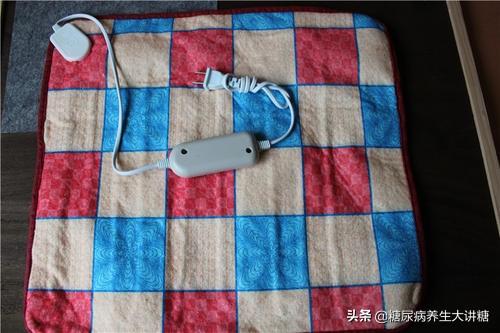
4. Adhere to physical exercise.
Cold weather is no reason not to exercise. After all, illness doesn't reason with you.
All are things that diabetics must adhere to at all times. One should find a way to get over the hump.
Because hypoglycemic drugs cannot improve the condition of diabetes, friends can only start with exercise and diet to improve their condition.
So don't give up exercising even in winter.
5. Adhere to a healthy diet.
In winter, because of the drop in temperature, the body's metabolism will be more vigorous, so the appetite will rise.
It has can be a little more in moderation, but it has to be based on calorie control and intake of healthy foods.
Foods high in carbon content must still be avoided as much as possible, such as rice, white flour, and high-calorie meats, which can be eaten, but in moderation.
6. Preventing falls
Older adults fear falls the most. Some of the falls that seniors have may be the last falls of their lives. To prevent falls and prevent osteoporosis is very, very important and a matter of life and limb.
So remember to take calcium supplements and wear non-slip shoes.
7. Regular medication.
If you feel that your condition has improved, you can contact your doctor and reduce your medication. However, do not stop the medication at your own discretion to avoid causing blood sugar fluctuations.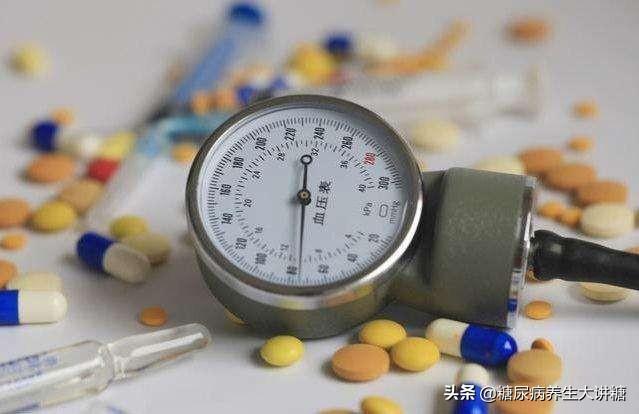
8. Avoid emotional ups and downs.
Intense emotions can cause nerve excitation, which can lead to an increase in blood sugar. Sugar lovers with cardiovascular disease, emotional excitement can also lead to life-threatening.
So whenever you can, make sure you prioritize controlling your emotions.
9. Increase the frequency of blood glucose monitoring.
Blood sugar fluctuates very easily during the winter months. It is important to monitor your body when you feel anything unusual. But usually it is once a week if you are monitoring. It should be monitored at least once a day for about three days.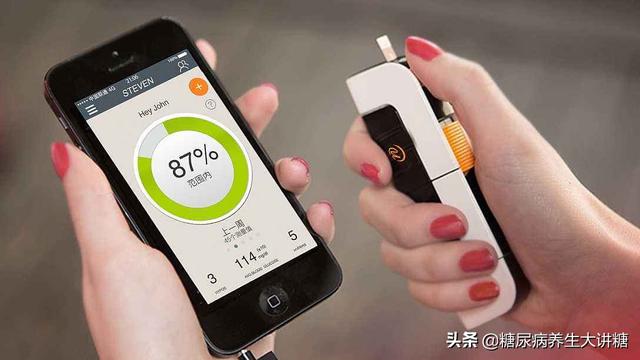
This article throughout the hand-typed, so if you like my answer, then please like, attention, forward, and any questions welcome to comment or private letter, more diabetes, chronic disease information in this headline, your support is my biggest yards power, thank you.
control your mouth and keep moving your legs
This question and answer are from the site users, does not represent the position of the site, such as infringement, please contact the administrator to delete.